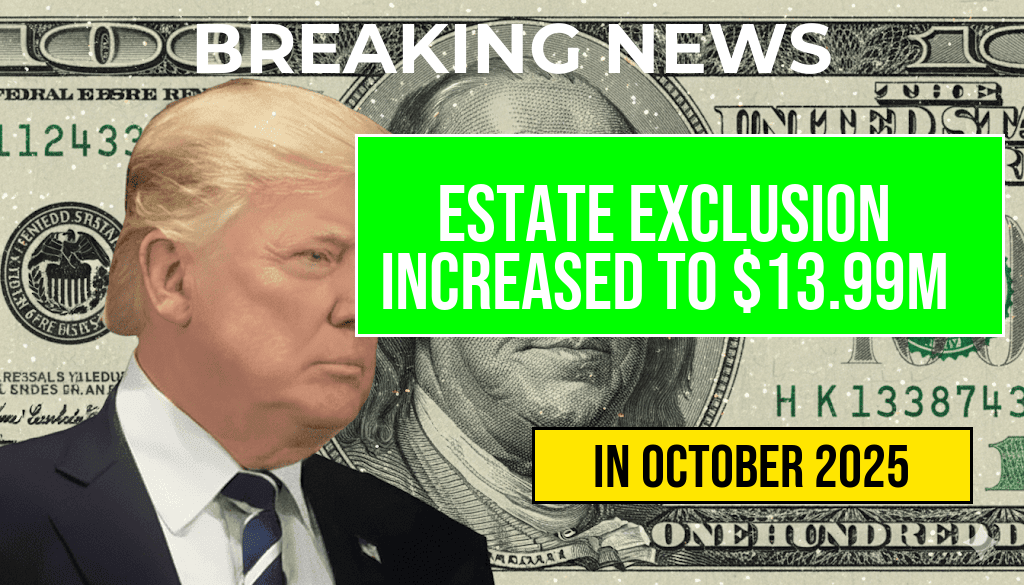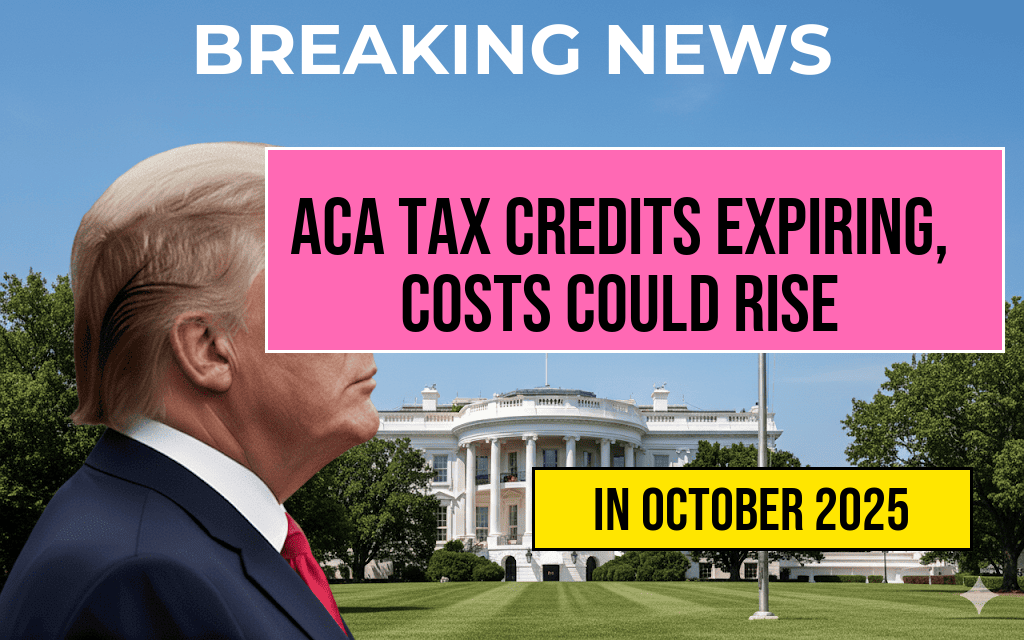Recent legislative adjustments have significantly increased the federal estate tax exemption threshold to $13,990,000, offering substantial advantages to high-net-worth individuals and their heirs. This revision means that estates valued below this amount are shielded from federal estate taxes, potentially saving families millions of dollars in tax liabilities. The change aligns with ongoing efforts to adjust tax policies for inflation and economic shifts, providing a more favorable landscape for estate planning. Experts suggest that this increase could influence inheritance strategies and charitable giving, impacting both wealthy families and estate planners across the country.
Understanding the New Estate Exclusion Limit
The estate exclusion limit, often referred to as the federal estate tax exemption, determines the maximum value of an estate that can be transferred to heirs without incurring estate taxes. Previously, this threshold was set at $11.7 million per individual for 2021, but recent legislation has raised it to $13,990,000 for estates settled in 2023. This adjustment reflects ongoing inflation adjustments and policy shifts aimed at reducing the tax burden on sizable estates.
Implications for Estate Planning
- Increased Tax Efficiency: Families with estates valued just below the new exemption can now transfer wealth without facing federal estate taxes, preserving more assets for heirs.
- Strategic Gifting: The higher exemption encourages more aggressive gifting strategies, allowing individuals to reduce their taxable estate while benefiting beneficiaries during their lifetime.
- Charitable Contributions: Donors may find it advantageous to structure charitable donations to further reduce taxable estate values, leveraging the increased exemption threshold.
Key Factors Influencing Estate Planning Decisions
The rise in the estate exclusion amount influences multiple aspects of wealth transfer strategies. Notably, estates exceeding the new threshold will still be subject to federal estate taxes, which can reach up to 40%. Therefore, high-net-worth individuals are advised to revisit their estate plans to optimize tax efficiencies and ensure alignment with current laws.
| Year | Exemption Limit |
|---|---|
| 2021 | $11,700,000 |
| 2022 | $12,060,000 |
| 2023 | $13,990,000 |
Potential Impact on Wealth Transfer and Estate Strategies
The increased exemption offers a rare opportunity for estate planners and families to maximize wealth transfer efficiency. For example, estates valued just below the new threshold can be transferred tax-free, preserving assets that might otherwise be diminished by taxation. This shift could also influence the timing of estate transfers and charitable giving, as individuals seek to utilize their exemption before potential future legislative changes.
Legal and Policy Context
The adjustment reflects broader policy efforts to balance tax revenue with economic growth. While the federal estate tax remains a contentious political issue, recent increases in the exemption limit demonstrate a move toward favoring wealth preservation for high-net-worth individuals. Legislative proposals continue to be debated, with some advocating for reductions in the exemption or modifications to estate tax rates.
Expert Perspectives and Future Outlook
Financial and estate planning professionals emphasize that the current exemption level significantly alters the landscape for wealth transfer. “This increase allows families to transfer substantial assets without the immediate concern of federal estate taxation, but it also underscores the importance of proactive planning,” notes an estate tax expert. As policymakers debate potential future changes, individuals are encouraged to consult with qualified estate attorneys to develop adaptive strategies.
Additional Resources
Frequently Asked Questions
What is the new estate exclusion amount?
The estate exclusion has been **revised** to a total of Thirteen Million Nine Hundred Ninety Thousand Dollars, allowing for larger estates to be transferred without incurring estate taxes.
How does the increased estate exclusion benefit heirs?
The increased **exclusion amount** provides **significant benefits** to heirs by reducing or eliminating **estate tax liabilities**, thereby maximizing the inheritance they receive.
Who qualifies for the estate exclusion under the new law?
Individuals with **estates valued** below the new exclusion threshold of Thirteen Million Nine Hundred Ninety Thousand Dollars are eligible for the **full exclusion**, simplifying estate planning and minimizing taxes.
Are there any changes to estate planning strategies due to the new exclusion amount?
Yes, the **rewritten estate exclusion** encourages **more aggressive estate planning**, allowing individuals to transfer larger assets tax-free and consider different **trust** or **gift strategies**.
When does the new estate exclusion amount take effect?
The **updated exclusion amount** is effective immediately, impacting **estate planning** and **tax filings** for estates settled after the implementation date.







